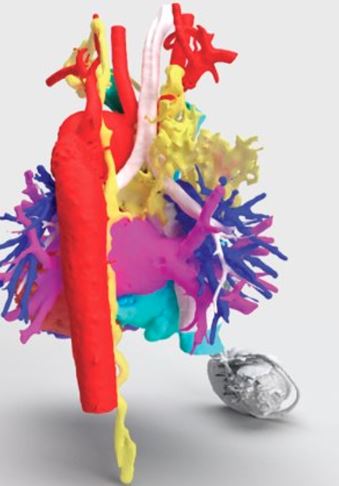Cardiac MRI
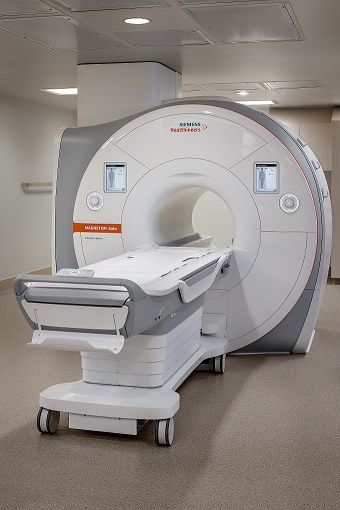
State-of-the-art MRI scanner.
A cardiac Magnetic Resonance Imaging (an MRI) of the heart creates images of the tissues, blood vessels and other structures inside and around the heart to evaluate their condition and to assist with the diagnosis and treatment of problems. It is commonly used to examine the structure and function of the heart such as the heart chambers, the heart valves, blood vessels, the thickness of the heart’s wall, any damage to the heart muscle or major blood vessels.
- Magnetic resonance imaging (MRIs) can produce much higher quality images of the heart than other methods, which can make a crucial difference in a doctor’s ability to quickly and accurately evaluate the heart.
- MRI is a non-invasive procedure.
- The patient is not exposed to any X-ray radiation during an MRI procedure.
- The contrast material (dye) used in MRIs is less likely to cause allergic reactions than those used for X-rays and CT scans.
Rady Children’s has a child-friendly, state-of-the-art MRI machine for performing cardiac MRIs, which is housed within the Dickinson Image Guided Intervention Center inside our Acute Care Pavilion. The Siemens Sola 1.5 tesla MRI, featuring the Cinema Vision goggles, enables kids to watch a movie or listen to music during an MRI exam. Studies have shown that entertainment during an MRI exam can soothe anxiety and minimize claustrophobia, leading to faster and better exams in children who meet the screening criteria for non-sedated studies.
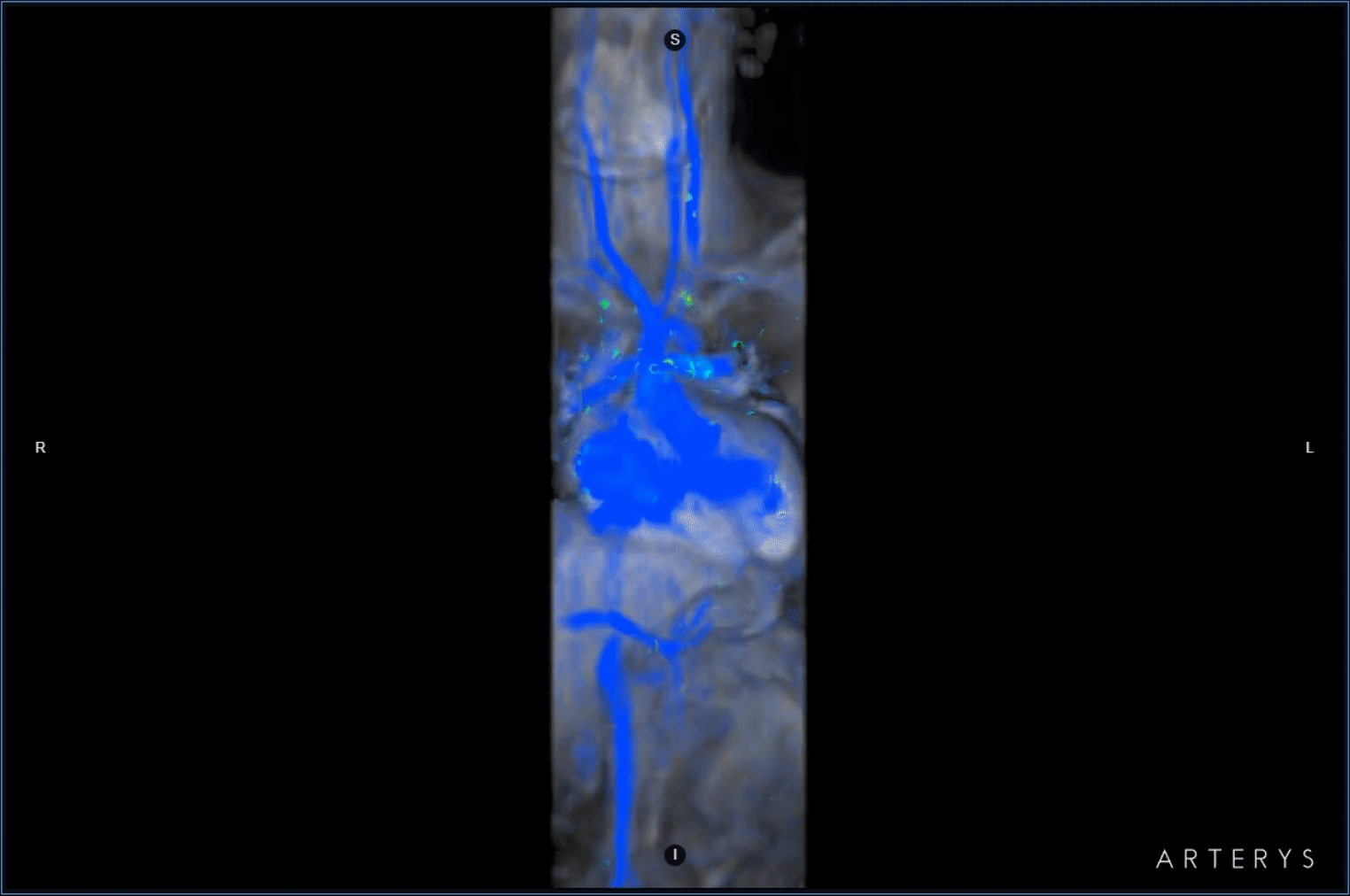
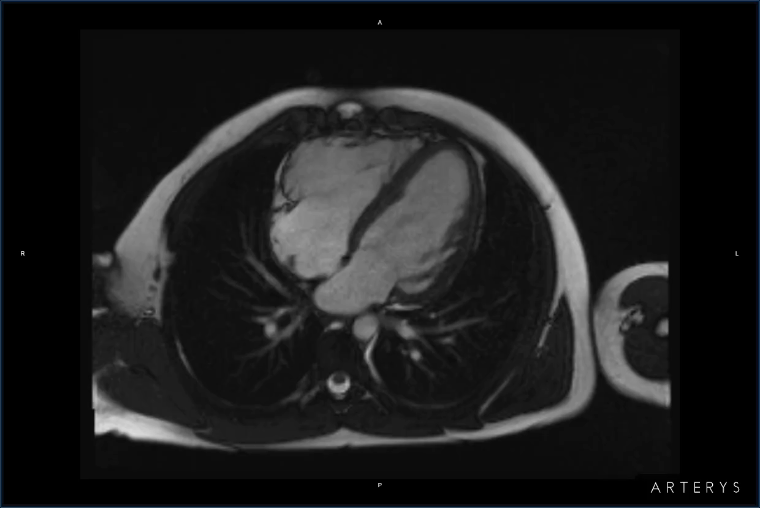
Stress Cardiac MRI
Children with heart disease often have complex physiology and anatomy that is well studied by cardiac MRI (CMR). However, this is typically done at rest and does not give any insight to how the heart functions and/or adapts during exercise which can be critical for guiding the care of the child.
Combining CMR with exercise stress test allows us to better assess the complex physiology, prognosticate and tailor therapy. Many heart conditions including congenital heart disease, pulmonary hypertension and coronary artery diseases can be studied using exercise stress cardiac MRI. A stress cardiac MRI can also be performed using medications which has shown to be very helpful in identifying coronary artery problems.

The MRI-compatible specialized supine bike used for stress testing.
Exercise Stress Cardiac MRI
One of the ways an exercise CMR can be performed is by using a specialized supine bike that is MRI-compatible.
This bike was installed recently at Rady Children’s Hospital and will be available for use in children and young adults.
Pharmacological Stress Cardiac MRI

Stress cardiovascular magnetic resonance (CMR) function of a pediatric heart.
In children with abnormal coronary artery anatomy or coronary artery disease performing stress cardiac MRI using special medication allows the doctors to study the changes in the heart muscle such as change in blood supply or abnormal motion that may be critical to determining the timing and best treatment for the child.
Fetal Cardiac MRI
Fetal cardiac MRI, or fetal magnetic resonance imaging, is a specialized medical imaging technique used to assess the heart of an unborn baby during pregnancy. This non-invasive procedure involves using a powerful magnetic field and radio waves to generate highly detailed images of the fetal heart and surrounding structures. Fetal cardiac MRI is particularly important for diagnosing congenital heart defects and assessing the heart’s function and anatomy before birth.
Cardiac CT
Rady Children’s Hospital has a state-of-the-art CT scanner that provides rapid and detailed imaging of our patients’ hearts and blood vessels. Imaging specialists at Rady Children’s Hospital have particular expertise in minimizing the amount of radiation that children and young adults are exposed to during their scan.
3D and Quantitative Imaging
Our technologists and research scientists use advanced software programs to create high-quality three-dimensional images that are critical for patient care.
3D Virtual Models
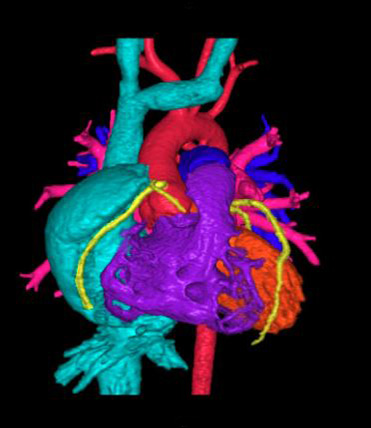
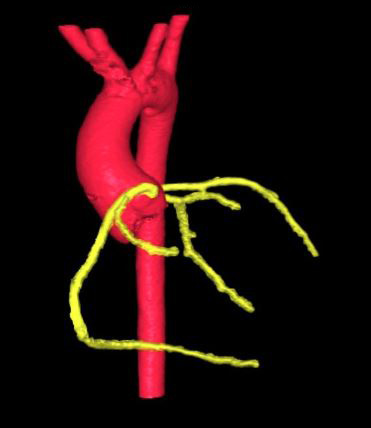
Tissue Imaging
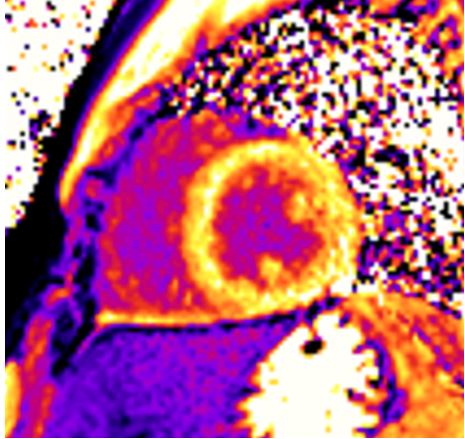
3D Printing
